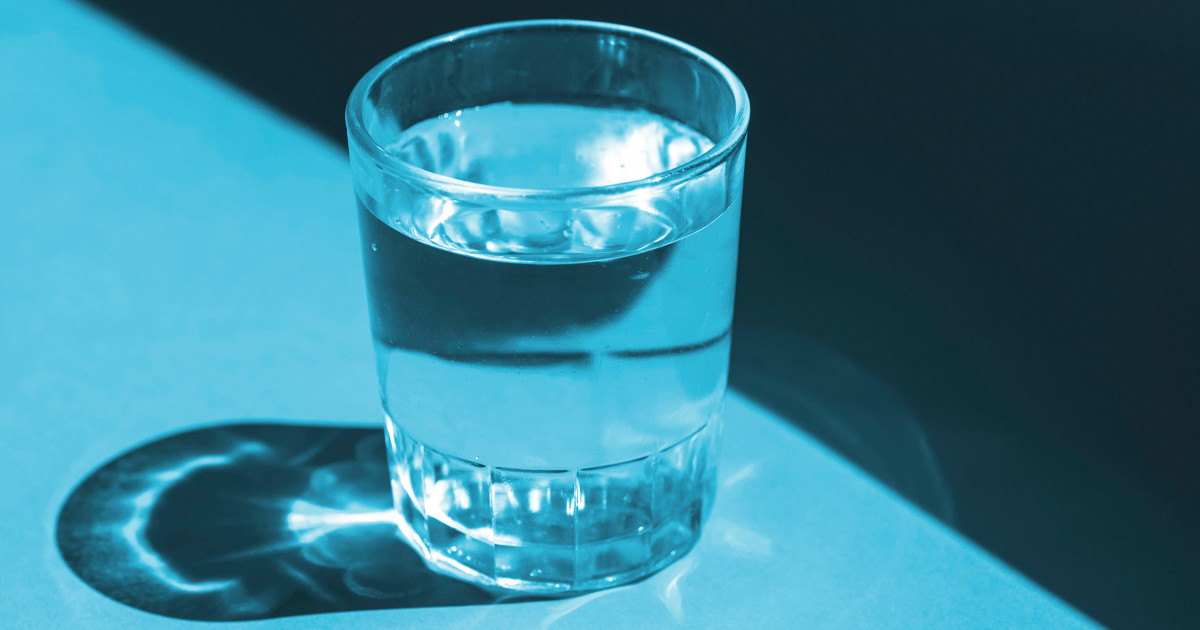If you’re feeling parched or fatigued after a workout or anytime during your normal daily routine, chances are you may be dehydrated. Neglecting to replace fluid losses can severely alter your energy levels, state of mind and health. That’s why rehydrating quickly can help get you back on your feet. Learn how much water you really need in a day, symptoms of dehydration and how to rehydrate swiftly and simply.
How much water do you need in a day?
It’s a widespread myth that you should drink eight glasses of water daily. The truth is that fluid recommendations vary based on a person’s age, activity level, size, sweat rate and living conditions. Yet, water makes up about 60% of the body, and the body is constantly losing fluid through urine, sweat and respiration. That’s why hydration is an essential part of human life.
But figuring out how much fluid an individual needs isn’t always simple. The National Academy of Medicine (NAM) states that the daily adequate intake (AI) of water is nine (8-ounce) cups for women and 13 for men. The AI is set to prevent short-term dehydration, but some people may need more water, especially if they sweat a lot or live in hot and humid conditions. In addition, NAM recommends consuming about 20% of your fluids through foods, like fruits and vegetables.
Dehydration symptoms
Dehydration happens to everyone, even those who closely follow the recommended fluid guidelines. It’s extremely common after an intense workout or prolonged time in a hot or humid environment. Dehydration can also occur if you forget to drink enough water throughout the day.
Dehydration may sneak up on you, and the symptoms vary from mild and annoying to severe and life-threatening. Here are some signs of dehydration to look out for:
- Fatigue
- Thirst
- Dry skin and lips
- Dark urine or decreased urine output
- Headaches
- Muscle cramps
- Lightheadedness
- Dizziness
- Fainting
- Skin tenting (the skin stays raised when pinched)
- Orthostatic hypotension (a drop in blood pressure when moving from sitting to standing)
- Heart palpitations
- Cardiac arrest
If you commonly experience one or more of these symptoms during or after exercise or at a particular time of the day, there’s a good chance you aren’t hydrating enough and need to rehydrate.
How to rehydrate quickly
Most rehydration guidelines pertain to athletes, but they can apply to the everyday person. The International Society of Sports Nutrition (ISSN) states that post-exercise goals should include completely replacing fluid and electrolyte losses from sweat. Here are some tips to rehydrate efficiently.
Weigh yourself before working out
Weighing yourself before and after exercise can help you see how much fluid has been lost, per the ISSN. You may need to drink up to three cups of water for every pound lost during a workout.
Include electrolytes
Include electrolytes in your rehydration plan for intense dehydration (more than 2% body weight lost during exercise). The body loses electrolytes, like sodium, magnesium, potassium and calcium, in sweat. Replacing those electrolytes is important to help the body maintain its normal fluid balance in and outside of the cells.
Plus, electrolytes help the body absorb water quickly. There isn’t a standard guideline for when electrolytes are necessary, but a good rule of thumb is to rehydrate with them after a workout that is longer than 60 minutes, a particularly intense workout (like HIIT or sprinting), or spending a prolonged time in hot and humid conditions.
Keep track of your urine color
Minor dehydration can also occur during less than 60 minute workouts or time spent in the heat. In these instances, sipping on water until your urine output and color return to normal is a good rehydration strategy.
Sip, don’t chug
Don’t chug water, as it is possible to overload the body with fluid, a dangerous condition called hyponatremia. Plus, drinking too much at once can make you feel queasy. Instead, sip on water for the following one to two hours after dehydration occurs.
Eat fruits and veggies
Don’t forget about eating hydrating foods, especially fruits and veggies, which can aid in rehydration.
The fastest way to treat dehydration
If you are concerned that you are severely dehydrated, you should seek medical care, as it could be an emergency and you may need treatment with IV fluids.
However, if you are just trying to rehydrate efficiently and don’t have symptoms of severe dehydration, the fastest option is to sip on water for one to two hours, or until you are no longer dehydrated.
Adding in electrolytes or another oral hydration solution can also help you treat dehydration more quickly.
How to tell if you’re properly hydrated
After rehydrating, your urine color should return to a pale yellow color. Your body weight will also return to normal. It may take a while for other symptoms, like headaches or fatigue, to subside.
Ideally, it’s best to avoid situations that require you to rehydrate. Stay hydrated before and during exercise to avoid dehydration.
Read the full article here
